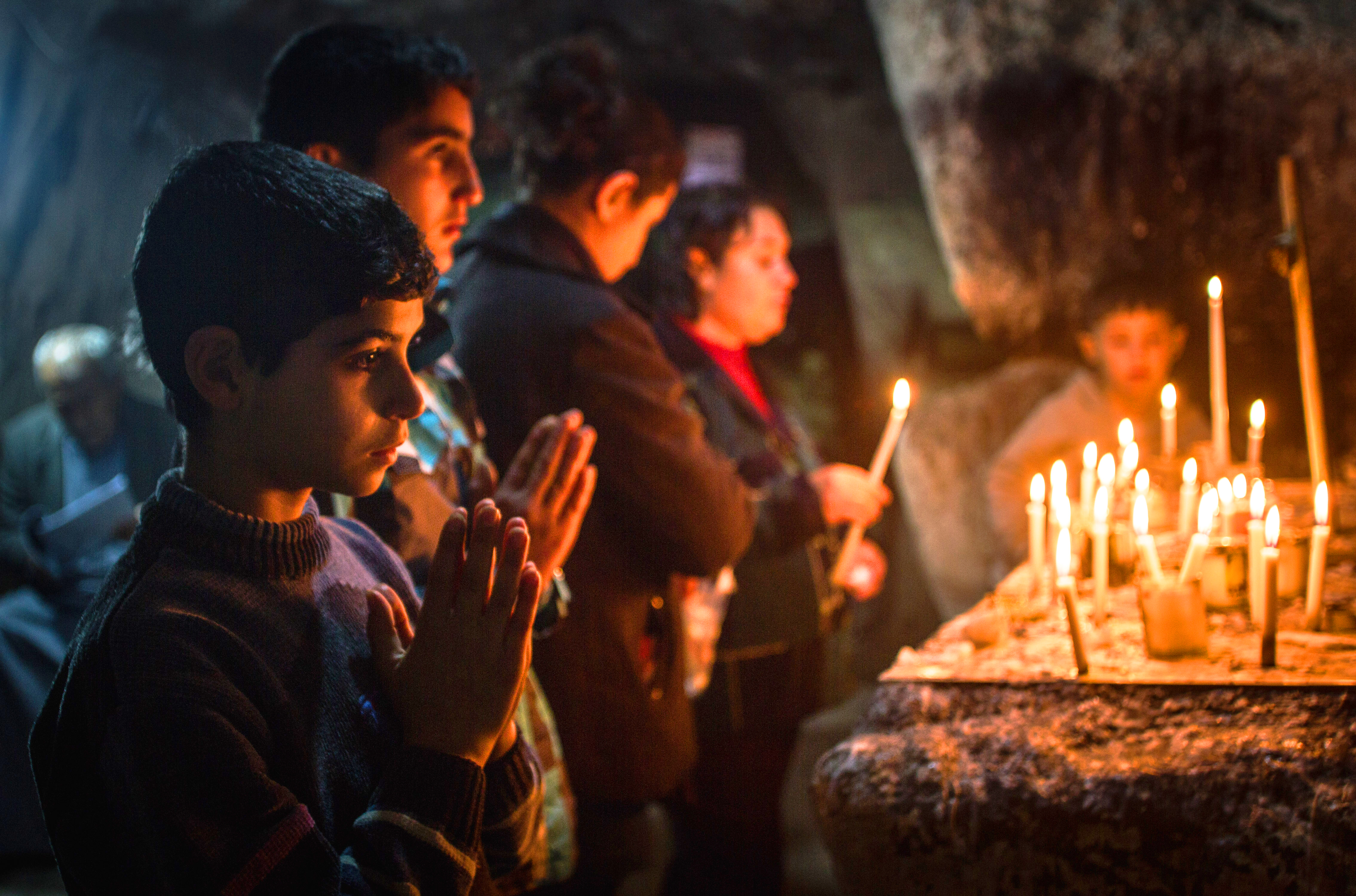Remember the martyrdom of Middle East Christians
An important lesson of Holy Week


A free daily email with the biggest news stories of the day – and the best features from TheWeek.com
You are now subscribed
Your newsletter sign-up was successful
For Christians, Holy Week is the most important period of the year. It's a time for us to commemorate the redemptive suffering of Jesus Christ on the Cross, and his victory over the forces of sin and death through his Resurrection.
(For more background on Holy Week, read my series from last year: Why Holy Thursday is so important to Christians; Why Good Friday is so important to Christians; Why Easter is so important to Christians.)
In the Middle East, most Christians belong to Eastern traditions of Christianity that have a strong liturgical focus, and Holy Week has historically been a time for the most beautiful ceremonies of the year.
The Week
Escape your echo chamber. Get the facts behind the news, plus analysis from multiple perspectives.

Sign up for The Week's Free Newsletters
From our morning news briefing to a weekly Good News Newsletter, get the best of The Week delivered directly to your inbox.
From our morning news briefing to a weekly Good News Newsletter, get the best of The Week delivered directly to your inbox.
But this year, Middle East Christians will be keeping Christ's suffering in mind in a special way. That's because their communities are being crucified as we speak.
Most people are unaware that Christians are the most persecuted religious group on the planet. Third-world Christians don't get any love from the West's political and media elites. They are, in the cynical and accurate phrase of the atheist French intellectual Régis Debray, too foreign for the right to care, and too Christian for the left to care.
The plight of Middle East Christians is tragic for a number of reasons. Some of these communities date back to the very beginning of Christianity. Some of them still speak Aramaic, the language most likely spoken by Jesus. Many Middle East Christians hail from specific churches with specific history and rites that don't have an equivalent elsewhere (except among scattershot immigrant populations). And finally, the plight of Middle East Christians isn't just persecution — it is cleansing.
Extremist groups like ISIS do not simply want to reduce Christians to dhimmitude, or murder the occasional apostate. They want to wipe Christianity out of its heartland.
A free daily email with the biggest news stories of the day – and the best features from TheWeek.com
The grisly martyrdom of 21 Coptic Christians in Libya was only the most visible and iconic manifestation of a much deeper phenomenon that goes little noticed in the West's capitals. For example, the ancient Syrian city of Maaloula, home to Christian communities since the dawn of Christianity and a haven for religious tolerance, has been nearly cleansed of Christians, to global silence.
As Middle East Christians gaze up at the suffering and broken face of their king, those of us comfortable in the West should at least talk about them and, if we are able to do so, especially, pray for them.
Pascal-Emmanuel Gobry is a writer and fellow at the Ethics and Public Policy Center. His writing has appeared at Forbes, The Atlantic, First Things, Commentary Magazine, The Daily Beast, The Federalist, Quartz, and other places. He lives in Paris with his beloved wife and daughter.
-
 Is Andrew’s arrest the end for the monarchy?
Is Andrew’s arrest the end for the monarchy?Today's Big Question The King has distanced the Royal Family from his disgraced brother but a ‘fit of revolutionary disgust’ could still wipe them out
-
 Quiz of The Week: 14 – 20 February
Quiz of The Week: 14 – 20 FebruaryQuiz Have you been paying attention to The Week’s news?
-
 The Week Unwrapped: Do the Freemasons have too much sway in the police force?
The Week Unwrapped: Do the Freemasons have too much sway in the police force?Podcast Plus, what does the growing popularity of prediction markets mean for the future? And why are UK film and TV workers struggling?
